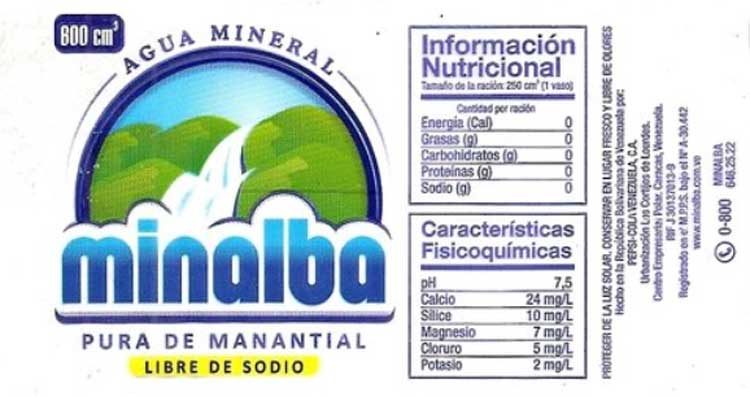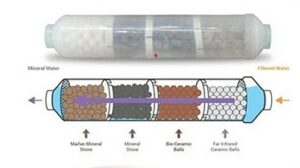I've dedicated a lot o time and energy trying to find the best source of drinking water for our family. We've used reverse osmosis as our primary filtration for years, but I now believe its side effects are significant and some considerations need to taken before taking it long term. The main side effects are:
- as the water is "too pure" (almost distilled water), it tends to leach important minerals from your body (which long term can create havoc in your body)
- water can be a bit acidic.
as everything in life, the usage of RO is relative. If you get contaminated water from your utility company, its probably a good idea to filter it as much as possible, but as a long term solution its probably not the best. I'm trying to find a win-win situation, to get clean water, but mitigate the unhealthy aspects of this filtration method.
We'll work to try to address both issues, 1. add the minerals back, 2. return the PH to a normal level (around 7.6 to 8.0)
PH and my breakthrough discovery
You can get PH meters on amazon ranging from 20$ (the cheap ones) to 50$ (the medium ones). I'm sure these meters are not laboratory quality, but may at least give you a broad idea where the PH is located.
Some background in PH
pH is a measure of how acidic/alkaline water is. The scale goes from 0 to 14, being 7 neutral. The consensus is that drinking water should be above a PH of 7.4 and below 8.0.
My first confirmation I got when I tested the water (after multiple articles claiming this), is that in fact the RO water directly from the filter came out slightly acidic (around 6.8), which is probably not healthy, but the breakthrough discovery I made is that if I left the water sitting on a open container overnight, the next morning the ph rose to around 7.5. I'm not so sure the reason, there is some speculation online about the realease or absortion (yes I have read it both ways (contradicting)) but not completely sure why these is.
The second breakthrough is that when you add the minerals back, the PH rises a bit more (this is also seen in some articles online).
what minerals should be in the water?
The numbers below are for reference only, is what is kind of "acceptable" concentrations. Calcium and Magnesium are the more import minerals. (note: don't follow these before you make your own research and consult with your MD, specially sodium is particularly delicate as it has blood pressure implications)
- magnesium (10 mg/lt)
- calcium (2 mg/lt) --- should be a bit higher
- potassium 7.5 mg/lt
- sodium (28 mg/lt) - 1 tea spoon of sea salt is about 2300 mg of sodium - ( *** sodium can raise your blood pressure *** )
- chloride
- phosphate
why are these minerals important?
the body is a big chemistry lab, and for everything to work correctly there has to be balance. everything everyday, every moment is balancing out inside your body. electrolytes are critical for you body to work properly, for your body to send and receive electrical communications between neurons, and one imbalance of one or other electrolyte can unbalance everything. for example: magnesium and calcium "work in pairs", too much magnesium can deplete calcium and vice-versa (*** double-check ***) and potassium and sodium (found in regular salt) also work in a similar matter.
if the fine balance of these electrolytes are out of balance everything will go downhill. for example magnesium is responsible for tens of critical bodily functions (for ex regulating muscle and nerve function, blood sugar levels, and blood pressure and making protein, bone, and DNA etc). blood pressure is a big one, because magnesium has a leading role on the blood pressure regulation. one could argue that magnesium deficiency could lead to hypertension (*** consult with your doctor if you have symptoms of hypertension***); on the other side, sodium has a big impact on hypertension, noting that people that have hypertension are put on a low sodium diet (*** no salt ***), even though sodium is still critical for other bodily functions, so super low sodium diet is probably not totally healthy at all.
bottom line: i'm trying to make the point its is critical that the correct and regular electrolyte balance is one of the building blocks to continue to build a healthy life.
I'm looking for a practical and healthy way to guarantee we're drinking the best quality water. This would mean:
- free of bacteria
- free of toxic chemicals
- with the correct amount of trace minerals (as shown above)
- with the correct PH
- that nourishes and hydrates the body
The current options:
- re-mineralization filter.
- most of the RO companies (for ex. iSpring) sell a "last stage" filter, which you add at the end of the filtration process (even after the osmosis tank), that when you open the valve, the water passes through this filter which on its insides has has magnesium, calcium and other, minerals. It is a clever idea, but I have multiple questions, primarily about quality and concentrations. I've tried it but honestly we feel weird after drinking that water. Not sure what these filters are adding and in what quantity. If we could find a re-mineralization filter with thousands of positive reviews, professional analyses and studies that shows it delivers the specific best quality minerals at the correct proportion I would be happy to review again.
- re-mineralization drops:
- same, as above, not sure what you're putting in the water and where the minerals are coming from, and you're a slave to that company's product, which is expensive and does not last very long.
- Himalayan salts:
- a lot of hype, but I believe they are 99% NaCl. not sure how many trace minerals they add, although I would not be against adding a bit, as sodium is an important electrolyte, but as a part of a bigger re-mineralization scheme.
- physically adding trace minerals (my current favorite):
- buying the required trace minerals and adding to the water.
- find the best source of individual magnesium, calcium and other trace minerals, best if powdered.
- i would not recommend buying a blend (as the re-mineralization drops option above) but I would go with individual minerals; mix them in the correct proportion and add to a 5 gallon glass bottle
- the tricky part would be to buy quality minerals and to mix them appropriately
- another thing to consider is to investigate (which i have not done yet), which form of the mineral is best for this application, for example, magnesium can not be bought pure (i believe they're even explosive or flammable), so you need to buy a mixture like magnesium citrate, magnesium oxide, magnesium threonate etc etc. there are dozens. You need to see which is the best in quality and to be dissolved on water. Same applies to calcium.
- for example, a very will respected spring water brand "Minalba" has the following "estimated" mineral composition:

- if you could get something similar to this mineral composition, being magnesium and calcium the most important (which is fairly easy to find) and complement with a bit of himalayan salts or some other trace mineral compound, i could see a viable long term option as a safe and practical drinking water solution.
- for example if you want to do a 20 liter batch, you would add 480 mg of calcium (24 mg/L x 20 L) and 140 mg of magnesium ( 7 mg/L x 20) give or take.
what form of minerals to add?
"...The preferred magnesium and calcium compounds include magnesium phosphate dibasic trihydrate and calcium carbonate, respectively..."
"...Mineral salts should be added to water in proper dosages. Choosing the right mineral type and checking the possible chemical reactions is also important. The use of clean water is recommended to ensure maximum safety and effectiveness. Some common examples of mineral salts include magnesium sulfate, sodium chloride, and calcium carbonate..."
references:
- https://waterpurificationguide.com/7-ways-you-can-add-minerals-to-your-water/
- https://www.smallwonderfood.com/2021/07/05/does-water-need-an-upgrade/
- re-mineralization:
- https://waterexotic.com/how-to-add-minerals-to-ro-water-naturally/
- https://patents.google.com/patent/US20110100890A1/en
- https://www.waterdropfilter.com/blogs/home-and-wellness/how-to-remineralize-ro-water
